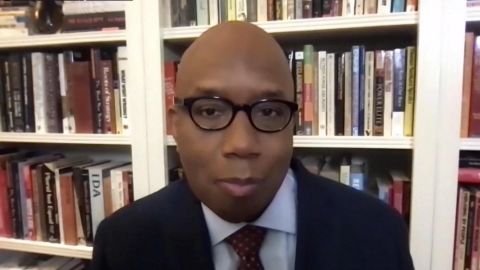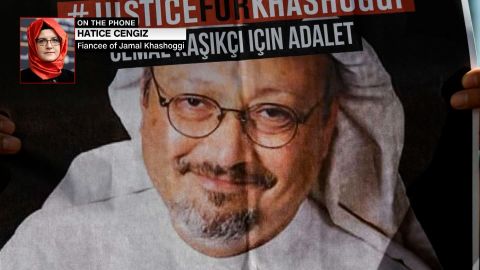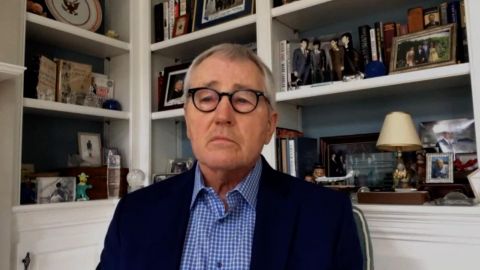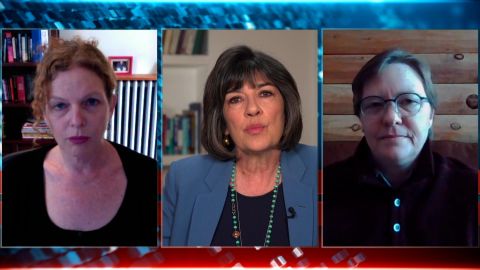Read Transcript EXPAND
DEIRDRE FISHEL, DIRECTOR, “WOMEN IN BLUE”: Well, thank you for having me. I went to Minneapolis because, at the time, there was a woman chief, Chief Harteau. And she had made it — she was very hell-bent on reform in general, but she saw recruiting women and promoting women as part of that reform. And so it was a good place to explore the question of women, and she wanted the film and gave me tremendous access. And that’s how I wound up in Minneapolis, never in a million years imagining that the story would end with the killing of George Floyd.
CHRISTIANE AMANPOUR: And, obviously, we will get to that. But let me ask you, C.J. Johnson, was Commissioner Harteau, was she responsible for your promotion? What was it like being in the Minneapolis Police Department under its first female and first openly gay police commissioner?
CATHERINE “C.J.” JOHNSON, FORMER MINNEAPOLIS POLICE DEPARTMENT INSPECTOR: Yes, I think that she, first of all, was instrumental not just in — obviously, she promoted me to the position that I held when I left, which was as the inspector of the Third Precinct, but was a mentor to me when I was a sergeant in the police department, and so I think, in a lot of ways, was instrumental in helping me develop the skills necessary to help lead.
AMANPOUR: So, you were there for 22 years. And we don’t want to generalize, but part of what this film shows is that there is a difference in policing across the genders, and that female officers were the subject of fewer citizens’ complaints and are less likely to use force. C.J. Johnson, can you talk about that? Do you agree with the premise? And if so, why?
JOHNSON: I think women, just in general, you hear Melissa talk about it, Chief Chiodo talk about it a little bit, in that there are circumstances where, if we have to get into a physical fight, just based on I’m not going to win a physical fight with a guy who is 6’2” and a bodybuilder. I mean, it’s just not — I’m not going to win. And so there’s a lot of circumstances where, as women, we’re forced to use our communication skills. And I think we have become accustomed to that as the way in which we police, that communication becomes the primary skill set upon which we rely. And I think that does change the way we approach things. I think we oftentimes tend to be more interested in taking our time with a call and not having to get to a resolution right now, and giving ourselves the time to communicate more effectively with the people that we’re interacting with.
About This Episode EXPAND
Deirdre Fishel and CJ Johnson discuss PBS’ “Women in Blue.” Plus, reactions to a newly unclassified report that concludes the murder of journalist Jamal Khashoggi was approved by Saudi Arabia’s Crown Prince Mohammed bin Salman. Also, Former U.S. Defense Secretary Chuck Hagel discusses last night’s airstrike on Iranian-backed militia groups in Syria. Journalist Errol Louis weighs in on Gov. Cuomo.
LEARN MORE



